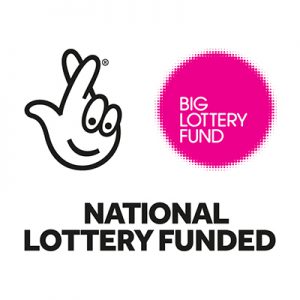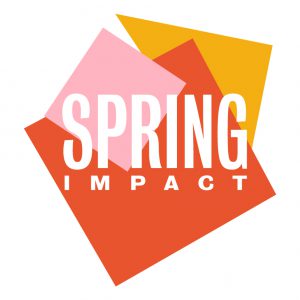2019 Scale Accelerator
Comments Off on 2019 Scale Accelerator



ANDE, Spring Impact, and Miller Center for Social Entrepreneurship came together to host a happy hour in San Francisco in March.
The event began with a networking reception, and ended with short presentations by Miller Center and Spring Impact’s Director Greg Coussa, who discussed the findings from our recent report “What Small and Growing Businesses Need to Scale Up: The Case for Effective Technical Assistance.”


Scale Accelerator will provide four cohorts of non-profits and social enterprises, drawn from all over the UK, with intensive support to scale their impact. In addition, Spring Impact will be supporting innovative funders to learn what really works in supporting organisations to scale, and how they can embed these practices within their organisations.
The programme has been made possible by the Big Lottery Fund, the largest funder of community activity in the UK, which distributes money raised by National Lottery players.
Joe Kallarackal Spring Impact Director said, “We know that we have fantastic organisations across the UK with incredibly impactful projects supporting our communities. Many desire to increase their impact, but need support to explore how to make this a reality. Whilst there are a range of resources focused on supporting innovation, developing new ideas, or assisting organisational growth, Spring Impact’s Scale Accelerator is uniquely focused on scaling social impact.
Not only are we excited about the potential to accelerate each participants’ impact, but also the opportunity to engage funders on how they can change their own practices to support scaling impact.”
Participating organisations will receive 9 months of consultancy support to define a clear plan for scaling their impact sustainably alongside access to expertise to tackle their biggest barriers to scale.
Derek Bardowell, Senior Head of UK Portfolio at the Big Lottery Fund, said: “We’re delighted that National Lottery funding is supporting this programme, which helps organisations to grow and increase their impact. Ambitious projects across the UK will be able to scale up their effects, enabling more people and communities to thrive.”
If you’re interested in taking part or know an organisation with a great proven social innovation click here to register your interest.
For more information about Spring Impact and how they help nonprofits and social enterprises scale up their social impact please contact [email protected].
Notes to Editor
About the Big Lottery Fund:
SAN FRANCISCO — While several people had suggested that Dianne Calvi, chief executive officer of Village Enterprise, connect with the International Center for Social Franchising, she found that she could never remember the name.
“That was really a missed opportunity,” she said, noting how the most successful NGOs all have memorable brands that capture what they do: Habitat for Humanity, Save the Children, The Nature Conservancy.
When Calvi took over Village Enterprise, a nonprofit that supports people living in extreme poverty in rural Africa to start businesses and savings groups, it was known as VEF, the Village Enterprise Fund, so she could relate to the branding challenge, she said at a recent rebranding event.
Now, ICSF has unveiled a new name, too.
As of Wednesday, the International Center for Social Franchising will be known as Spring Impact. The organization took Devex behind the scenes of its rebrand. Under the new name, the nonprofit hopes to influence not only individual organizations, but also the social sector as a whole, to consider replication as a pathway to scale.
We’ve learned over the years that while replication is difficult, it can be made easier, more systematic and less risky. It starts with not thinking that there’s a one-size-fits-all model for scaling social impact, which is why we have rebranded to Spring Impact.
Our rebrand reflects our open, questioning approach, working in partnership with organizations to find the right path for them, so that, together, we can scale social impact efficiently and effectively.
Our work means we’re privileged to meet groundbreaking organisations that have effective solutions for the world’s biggest problems. Whether tackling homelessness, education or reproductive health, we guide organisations through the process of scaling their impact.
There are a number of ways this can be achieved. The simplest (in theory!) is to grow the organisation, by raising more funding and income to increase its reach. In practice, however, resources are limited and this route is very difficult.
“While advances in health care in the developed world often emphasize new technologies, in developing lower- and middle-income countries simply expanding the reach of basic primary care services is crucial to improving health.” Click here to read the full article and you can also read the full “Rapid Routes to Scale report here“.
Rapid Routes to Scale is a unique group of stakeholders from the academic, social and private sectors, committed to improving the health of poorer populations by understanding how to scale primary healthcare, and in turn acting upon these findings.
These stakeholders include: Bill and Melinda Gates Foundation Center for Health Market Innovations, Spring Impact, GlaxoSmithKline, International Partnership for Innovative Healthcare Delivery, Merck & Co, Merck Serono, Novo Nordisk, T-HOPE University of Toronto.
For the first part of my trip I took part in the Solutions Summit, the biggest gathering of Schwab Social Entrepreneurs in the last four years. They are the world’s largest network of late stage social entrepreneurs counting over 400 members. There were about 150 members at the gathering and the topic under discussion was ‘Scaling Up What Works’. It was a great to speak to like-minded people and I ran a session on scaling up and replication attended by 50 members receiving lots of interest from entrepreneurs seeking to scale up their proven programmes.
There were a lot of highlights for ‘Schwabbies’ (as Schwab Social Entrepreneurs often refer to themselves). To name a few:
The second half of my week was spent at the World Economic Forum Africa itself.
The Forum is a chance for leaders of state, politicians and corporates across Africa to meet and work together.
I met the President of Zimbabwe Robert Mugabe and President of South Africa Jacob Zuma, both key players in the Emerging African Story. We had a session with 30 fellows and the new South African Minister of Finance (Previous Minister of Home Affairs and Minister of Public Enterprise), Malusi Gigaba. Together we had a fascinating conversation about his plans for improving the finances of South Africa.
As always, the highlights for me involved individuals and the relationships I grew and developed throughout the event. I spent hours talking with Lindiwe Mazibuko about her experiences being the parliamentary leader of the opposition party in South Africa and the toll it took on her, as well as her future plans.
I was blown away talking with Victor Ochen about his background as a refugee in Uganda and how he overcame great odds to build the African Youth Initiative Network. He’s now putting pressure on the government to create change.
The WEF Africa was an in-depth, heartfelt and expert update on Africa, and I have lots of ideas on how the work we do at the Spring Impact can contribute.
Need more food for thought? Many of the conference’s talks are available online.
Pregnancy and the first months of a child’s life are crucial and lay the foundations for their future. Becoming a parent can be extra difficult for some parents because of their own circumstances and past experiences, particularly if they don’t get the support they need to prepare for parenthood.
This is where NSPCC’s perinatal education programme, Baby Steps, intervenes, supporting future parents to care for their new baby and reduce stress associated with the arrival of a new baby.
NSPCC needed help to determine how to scale this robust, evidence-based model in order to help more vulnerable expectant parents across the UK. We worked with NSPCC and Kate Billingham, international specialist on prevention of child maltreatment in early life, to deliver a strategy that would enable Baby Steps to scale.
Following our recommendation to pursue a social franchise model NSPCC started to recruit local delivery partners as franchisees in 2015. Baby Steps is now delivered in 7 areas across the UK.
It started with one woman, homeless in San Francisco, lamenting that she would never be clean. Lava Mae founder, Doniece Sandoval, heard her cries. Those words, a desire to help those experiencing homelessness, and a crazy obsession with the mobile food truck movement set in motion what would eventually become Lava Mae.
Lava Mae believes that access to showers and toilets shouldn’t be a luxury, and seeks to serve those who lack access to what should be basic human rights – showers and sanitation. Since June 2014 the team has delivered over 14,000 showers, welcoming them according to Lava Mae’s mantra of ‘radical hospitality.’
In light of the huge need and demand for their work, Lava Mae started thinking about how they could scale their impact. They recognised the potential to positively affect more people experiencing homelessness in other geographies by replicating their model.
At the time of engaging Spring Impact, Lava Mae had countless opportunities both in the US and around the globe, and multiple ideas for scaling up its impact. We have since helped Lava Mae to redefine their strategic direction, concentrate their expansion efforts on two scale-up strategies and are continuing to help the Lava Mae team implement them in a sustainable way.
Rapid Routes to Scale is a unique group of stakeholders from the academic, social and private sectors, committed to improving the health of poorer populations by understanding how to scale primary healthcare, and in turn acting upon these findings.
These stakeholders include: Bill and Melinda Gates Foundation Center for Health Market Innovations, Spring Impact, GlaxoSmithKline, International Partnership for Innovative Healthcare Delivery, Merck & Co, Merck Serono, Novo Nordisk, T-HOPE University of Toronto.
Rapid Routes to Scale collaborated to produce the Scaling up primary healthcare in low & middle income countries report with the aim of understanding how primary healthcare delivery can be scaled up in the developing world. This research uncovers a range of primary care programs, identifies what works and what does not work when scaling up, and recommends programmes that have the potential to improve millions of lives.
*In 2017 The International Centre for Social Franchising (ICSF) became Spring Impact. This report was created under our old branding and name.